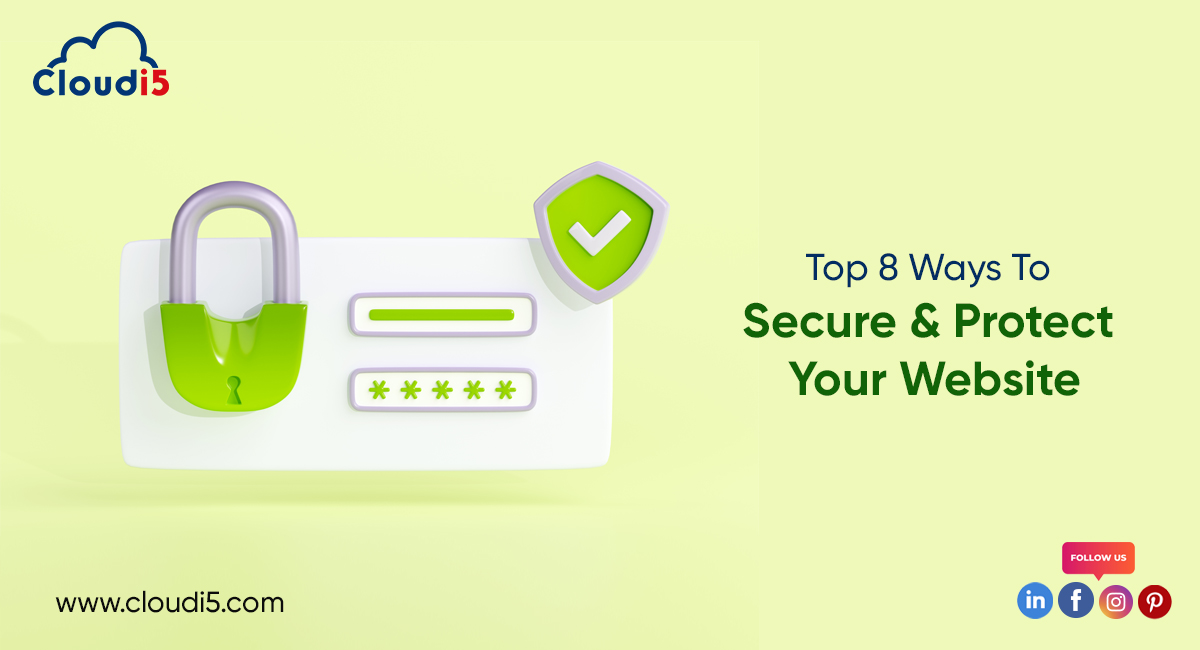
Top 8 Ways To Secure & Protect Your Website
How to keep my website secure?
Website security protects your website from all possible vulnerabilities, malware, and breaches. There are 8 crucial ways to protect your website from bad ventures. The best and top eight ways to secure and protect your website.
-
Software Update
Hackers always concentrate on low-policy updations software. It is always better to update your software to the latest version. It is highly recommended not to use any illegal or cracked versions of any service. Constantly update your software because the service providers frequently resolve and release errors. So, hackers mainly focus on the mistakes of older versions. Once you update your software, the errors may vanish, and you cannot be prone to hackers. This is the best website strategy to implement it.
2. Password Strength and Policy
Website protection is mainly driven by characters called 'Password' Login, and logout authentication strongly depends on the strength of your password. Hackers mainly use some brute force implemented malware to crack your passwords. So, better choose your passwords as a combination of Uppercase, lowercase, numbers, and special characters. This combination will protect your password from all attacks.
3. Encryption for login modules
It is always better to use SSL encryption on your login modules. It provides excellent security to your credit card numbers, encrypted security keys, and authentication credentials. It also securely transmits the data. It converts the password into a meaningless encrypted message so that third-party apps cant access your data.
4. Usage of Secure host
This is one of the most requested website security features. If you are unaware of security tools, you can better protect your website by hiring a professional website design company. Choose a server that backs up your data and provides full-time support. This feature is needed to recover and restore your data in case of hacking.
5. Cleaning all your website data
Use a file organizer or maintainer to arrange all your files properly. Frequently delete all the files which are not in use and always maintain them by cleaning the cache and keeping track of the files changed. Website Strategy is directly related to the arrangement of your files and data.
6. Data Backup and security
The best way to secure a website is to use a server that backs up all processes and website data. Once you are hacked, you can use this already-saved copy to again re-implement and change your company's credentials. This is the ideal site strategy that can be relied on without worry.
7. Website vulnerabilities scanning
Regularly expose your website to several security scans to identify and rectify the threats. It should be noted that it can be performed at a scheduled time or achieved when you have added extra features. Many scans do not provide deep scanning functionalities and can only be used for minor threat detection. But hiring professional web scanners can help you detect malware from all the corners of your website.
8. Consult a security expert
The 'How to keep my website secure?' question can always be answered quickly by a security expert. You can contact an expert to save time, labor, effort, and money by properly doing the encryption using a security expert. They can tirelessly perform website scanning, threats detection, and backup with proper planning when you hire them.
Trusted By












Leave Comments